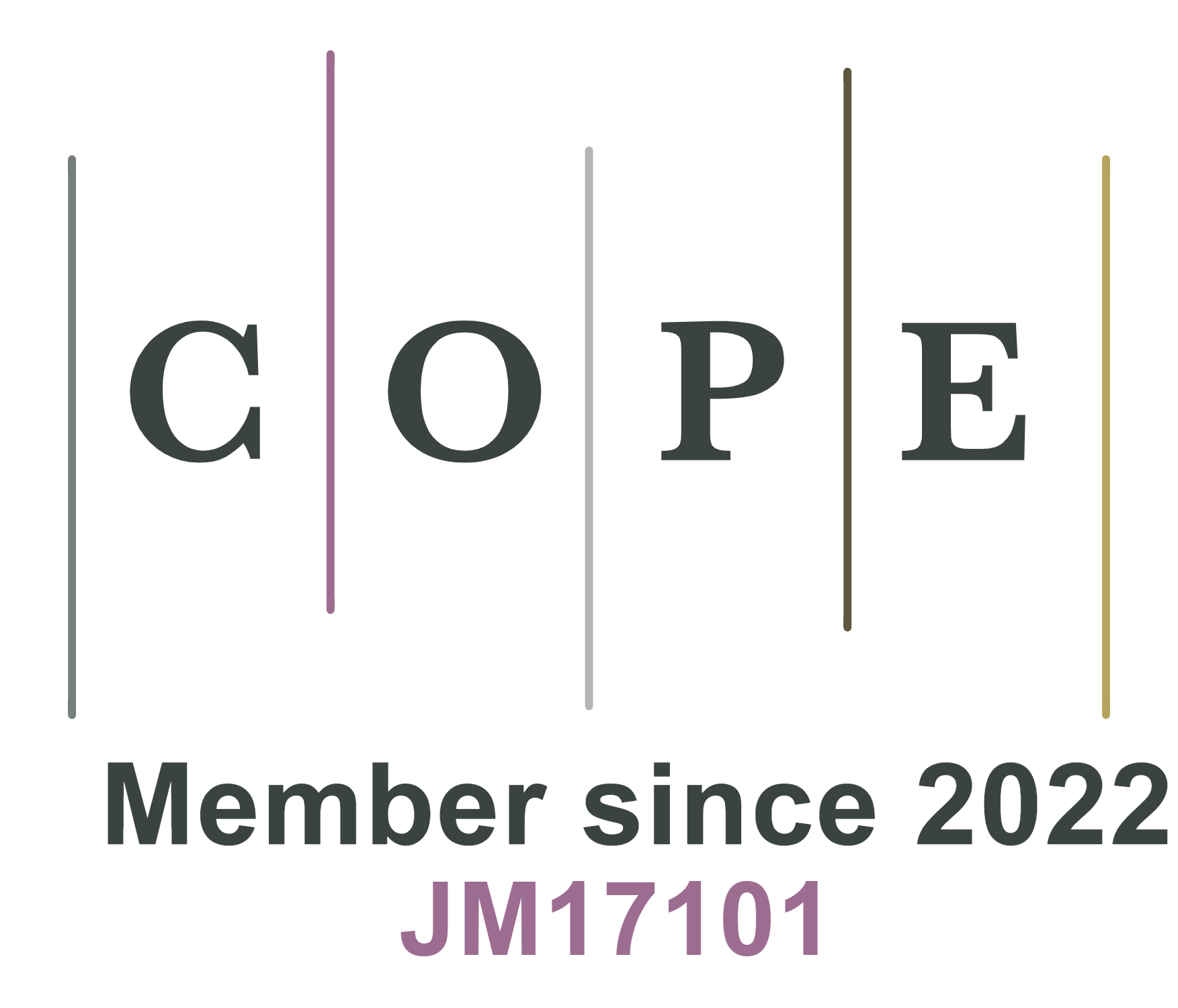REFERENCES
1. Ding Y, Cano ZP, Yu A, Lu J, Chen Z. Automotive li-ion batteries: current status and future perspectives. Electrochem Energ Rev 2019;2:1-28.
3. Park OK, Cho Y, Lee S, Yoo H, Song H, Cho J. Who will drive electric vehicles, olivine or spinel? Energy Environ Sci 2011;4:1621.
5. Eftekhari A, Jian Z, Ji X. Potassium secondary batteries. ACS Appl Mater Interfaces 2017;9:4404-19.
7. Bruce PG, Freunberger SA, Hardwick LJ, Tarascon JM. Li-O2 and Li-S batteries with high energy storage. Nat Mater 2011;11:19-29.
8. Zhang T, Tao Z, Chen J. Magnesium-air batteries: from principle to application. Mater Horiz 2014;1:196-206.
9. Li M, Lu J, Ji X, et al. Design strategies for nonaqueous multivalent-ion and monovalent-ion battery anodes. Nat Rev Mater 2020;5:276-94.
10. Li Y, Lu J. Metal-air batteries: will they be the future electrochemical energy storage device of choice? ACS Energy Lett 2017;2:1370-7.
12. Ming J, Guo J, Xia C, Wang W, Alshareef HN. Zinc-ion batteries: materials, mechanisms, and applications. Mater Sci Eng R Rep 2019;135:58-84.
13. Hao J, Yuan L, Zhu Y, Jaroniec M, Qiao SZ. Triple-function electrolyte regulation toward advanced aqueous Zn-Ion batteries. Adv Mater 2022;34:e2206963.
14. Hao J, Yuan L, Johannessen B, et al. Studying the conversion mechanism to broaden cathode options in aqueous zinc-ion batteries. Angew Chem Int Ed 2021;60:25114-21.
15. Zampardi G, La Mantia F. Open challenges and good experimental practices in the research field of aqueous Zn-ion batteries. Nat Commun 2022;13:687.
16. Wang N, Wan H, Duan J, et al. A review of zinc-based battery from alkaline to acid. Mater Today Adv 2021;11:100149.
17. Deng Y, Liang R, Jiang G, Jiang Y, Yu A, Chen Z. The current state of aqueous Zn-based rechargeable batteries. ACS Energy Lett 2020;5:1665-75.
18. Li Y, Fu J, Zhong C, et al. Recent advances in flexible zinc-based rechargeable batteries. Adv Energy Mater 2019;9:1802605.
19. Liu Y, Li L, Ji X, Cheng S. Scientific challenges and improvement strategies of zn-based anodes for aqueous Zn-ion batteries. Chem Rec 2022;22:e202200114.
20. Wu M, Zhang G, Yang H, et al. Aqueous Zn-based rechargeable batteries: recent progress and future perspectives. InfoMat 2022;4.
21. Liu Y, Lu X, Lai F, et al. Rechargeable aqueous Zn-based energy storage devices. Joule 2021;5:2845-903.
22. Hao J, Li X, Zeng X, Li D, Mao J, Guo Z. Deeply understanding the Zn anode behaviour and corresponding improvement strategies in different aqueous Zn-based batteries. Energy Environ Sci 2020;13:3917-49.
23. Blanc LE, Kundu D, Nazar LF. Scientific challenges for the implementation of Zn-ion batteries. Joule 2020;4:771-99.
24. Jo YN, Prasanna K, Kang SH, et al. The effects of mechanical alloying on the self-discharge and corrosion behavior in Zn-air batteries. J Ind Eng Chem 2017;53:247-52.
25. Lee S, Kim Y, Eom S, Choi N, Kim K, Cho S. Improvement in self-discharge of Zn anode by applying surface modification for Zn-air batteries with high energy density. J Power Sources 2013;227:177-84.
26. Li Z, Wu L, Dong S, et al. Pencil drawing stable interface for reversible and durable aqueous zinc-ion batteries. Adv Function Mat 2021;31.
27. Liang M, Zhou H, Huang Q, Hu S, Li W. Synergistic effect of polyethylene glycol 600 and polysorbate 20 on corrosion inhibition of zinc anode in alkaline batteries. J Appl Electrochem 2011;41:991-7.
28. Higashi S, Lee SW, Lee JS, Takechi K, Cui Y. Avoiding short circuits from zinc metal dendrites in anode by backside-plating configuration. Nat Commun 2016;7:11801.
29. Yu Z, Wang H, Kong X, et al. Molecular design for electrolyte solvents enabling energy-dense and long-cycling lithium metal batteries. Nat Energy 2020;5:526-33.
30. Wang F, Borodin O, Gao T, et al. Highly reversible zinc metal anode for aqueous batteries. Nat Mater 2018;17:543-9.
31. Wan F, Niu Z. Design strategies for vanadium-based aqueous zinc-ion batteries. Angew Chem Int Ed 2019;131:16508-17.
32. Zhang D, Cao J, Zhang X, et al. Inhibition of manganese dissolution in Mn2O3 cathode with controllable Ni2+ incorporation for high-performance zinc ion battery. Adv Funct Mater 2021;31:2009412.
33. Zhu C, Fang G, Liang S, et al. Electrochemically induced cationic defect in MnO intercalation cathode for aqueous zinc-ion battery. Energy Stor Mater 2020;24:394-401.
34. Tamilselvan M, Madhukar Sreekanth TV, Yoo K, Kim J. Self-doped 2D-V2O5 nanoflakes - a high electrochemical performance cathode in rechargeable zinc ion batteries. Ceram Int 2021;47:29832-9.
35. Xie X, Fang G, Xu W, et al. In situ defect induction in close-packed lattice plane for the efficient zinc ion storage. Small 2021;17:e2101944.
36. Zhang H, Fang Y, Yang F, Liu X, Lu X. Aromatic organic molecular crystal with enhanced π-π stacking interaction for ultrafast Zn-ion storage. Energy Environ Sci 2020;13:2515-23.
37. Yang W, Yang W, Dong L, Shao G, Wang G, Peng X. Hierarchical ZnO nanorod arrays grown on copper foam as an advanced three-dimensional skeleton for dendrite-free sodium metal anodes. Nano Energy 2021;80:105563.
38. Zhang N, Cheng F, Liu Y, et al. Cation-deficient spinel ZnMn2O4 cathode in Zn(CF3SO3)2 electrolyte for rechargeable aqueous Zn-ion battery. J Am Chem Soc 2016;138:12894-901.
39. Cai W, Yao YX, Zhu GL, et al. A review on energy chemistry of fast-charging anodes. Chem Soc Rev 2020;49:3806-33.
40. Hu P, Wang T, Zhao J, et al. Ultrafast alkaline Ni/Zn battery based on Ni-foam-supported Ni3S2 nanosheets. ACS Appl Mater Interfaces 2015;7:26396-9.
41. Selvakumaran D, Pan A, Liang S, Cao G. A review on recent developments and challenges of cathode materials for rechargeable aqueous Zn-ion batteries. J Mater Chem A 2019;7:18209-36.
42. Huang J, Wang Z, Hou M, et al. Polyaniline-intercalated manganese dioxide nanolayers as a high-performance cathode material for an aqueous zinc-ion battery. Nat Commun 2018;9:2906.
43. Rodríguez-Pérez IA, Yuan Y, Bommier C, et al. Mg-ion battery electrode: an organic solid’s herringbone structure squeezed upon Mg-ion insertion. J Am Chem Soc 2017;139:13031-7.
44. Pan W, Wang Y, Zhao X, et al. High-performance aqueous Na-Zn hybrid ion battery boosted by “water-in-gel” electrolyte. Adv Funct Mater 2021;31:2008783.
45. Suo L, Borodin O, Wang Y, et al. “Water-in-Salt” electrolyte makes aqueous sodium-ion battery safe, green, and long-lasting. Adv Energy Mater 2017;7:1701189.
46. Shi P, Zheng H, Liang X, et al. A highly concentrated phosphate-based electrolyte for high-safety rechargeable lithium batteries. Chem Commun 2018;54:4453-6.
47. Yamada Y, Yamada A. Superconcentrated electrolytes to create new interfacial chemistry in non-aqueous and aqueous rechargeable batteries. Chem Lett 2017;46:1056-64.
48. Zhao J, Li Y, Peng X, et al. High-voltage Zn/LiMn0.8Fe0.2PO4 aqueous rechargeable battery by virtue of “water-in-salt” electrolyte. Electrochem Commun 2016;69:6-10.
49. Chen S, Lan R, Humphreys J, Tao S. Salt-concentrated acetate electrolytes for a high voltage aqueous Zn/MnO2 battery. Energy Stor Mater 2020;28:205-15.
50. Zhang L, Rodríguez-pérez IA, Jiang H, et al. ZnCl2 “Water-in-Salt” electrolyte transforms the performance of vanadium oxide as a Zn battery cathode. Adv Funct Mater 2019;29:1902653.
51. Sha M, Dong H, Luo F, Tang Z, Zhu G, Wu G. Dilute or concentrated electrolyte solutions? J Phys Chem Lett 2015;6:3713-20.
52. Yu L, Chen S, Lee H, et al. A localized high-concentration electrolyte with optimized solvents and lithium difluoro(oxalate)borate additive for stable lithium metal batteries. ACS Energy Lett 2018;3:2059-67.
53. Chen S, Zheng J, Mei D, et al. High-voltage lithium-metal batteries enabled by localized high-concentration electrolytes. Adv Mater 2018;30:1706102.
54. Ren X, Chen S, Lee H, et al. Localized high-concentration sulfone electrolytes for high-efficiency lithium-metal batteries. Chem 2018;4:1877-92.
55. Cao R, Lee J, Liu M, Cho J. Recent progress in non-precious catalysts for metal-air batteries. Adv Energy Mater 2012;2:816-29.
56. Logeshwaran N, Ramakrishnan S, Chandrasekaran SS, et al. An efficient and durable trifunctional electrocatalyst for zinc-air batteries driven overall water splitting. Appl Catal B Environ 2021;297:120405.
57. Eckert M, Peters W, Drillet JF. Fast Microwave-assisted hydrothermal synthesis of pure layered delta-MnO2 for multivalent ion intercalation. Materials 2018;11:2399.
58. Ramakrishnan S, Velusamy DB, Sengodan S, et al. Rational design of multifunctional electrocatalyst: An approach towards efficient overall water splitting and rechargeable flexible solid-state zinc-air battery. Appl Catal B Environ 2022;300:120752.
59. Fu J, Cano ZP, Park MG, Yu A, Fowler M, Chen Z. Electrically rechargeable zinc-air batteries: progress, challenges, and perspectives. Adv Mater 2017;29:1604685.
60. Cheng F, Chen J. Metal-air batteries: from oxygen reduction electrochemistry to cathode catalysts. Chem Soc Rev 2012;41:2172-92.
61. Lee J, Tai Kim S, Cao R, et al. Metal-air batteries with high energy density: Li-air versus Zn-air. Adv Energy Mater 2011;1:34-50.
62. Liang HW, Zhuang X, Brüller S, Feng X, Müllen K. Hierarchically porous carbons with optimized nitrogen doping as highly active electrocatalysts for oxygen reduction. Nat Commun 2014;5:4973.
63. Tang C, Wang HF, Zhang Q. Multiscale principles to boost reactivity in gas-involving energy electrocatalysis. ACC Chem Res 2018;51:881-9.
64. Guo S, Zhang S, Su D, Sun S. Seed-mediated synthesis of core/shell FePtM/FePt (M = Pd, Au) nanowires and their electrocatalysis for oxygen reduction reaction. J Am Chem Soc 2013;135:13879-84.
65. Chung DY, Jun SW, Yoon G, et al. Highly durable and active ptfe nanocatalyst for electrochemical oxygen reduction reaction. J Am Chem Soc 2015;137:15478-85.
66. Bu L, Guo S, Zhang X, et al. Surface engineering of hierarchical platinum-cobalt nanowires for efficient electrocatalysis. Nat Commun 2016;7:11850.
67. Xu N, Nie Q, Wei Y, et al. Bi-functional composite electrocatalysts consisting of nanoscale (La, Ca) oxides and carbon nanotubes for long-term zinc-air fuel cells and rechargeable batteries. Sustain Energy Fuels 2018;2:91-5.
68. Wang Y, Fu J, Zhang Y, et al. Continuous fabrication of a MnS/Co nanofibrous air electrode for wide integration of rechargeable zinc-air batteries. Nanoscale 2017;9:15865-72.
69. Niu W, Li Z, Marcus K, et al. Surface-modified porous carbon nitride composites as highly efficient electrocatalyst for Zn-air batteries. Adv Energy Mater 2018;8:1701642.
70. Hu S, Han T, Lin C, et al. Enhanced electrocatalysis via 3D graphene aerogel engineered with a silver nanowire network for ultrahigh-rate zinc-air batteries. Adv Funct Mater 2017;27:1700041.
71. Li B, Geng D, Lee XS, et al. Eggplant-derived microporous carbon sheets: towards mass production of efficient bifunctional oxygen electrocatalysts at low cost for rechargeable Zn-air batteries. Chem Commun 2015;51:8841-4.
72. Lu X, Yim WL, Suryanto BH, Zhao C. Electrocatalytic oxygen evolution at surface-oxidized multiwall carbon nanotubes. J Am Chem Soc 2015;137:2901-7.
73. Tang C, Wang B, Wang HF, Zhang Q. Defect engineering toward atomic Co-Nx-C in hierarchical graphene for rechargeable flexible solid Zn-air batteries. Adv Mater 2017;29:1703185.
74. Lee DU, Choi JY, Feng K, Park HW, Chen Z. Advanced extremely durable 3D bifunctional air electrodes for rechargeable zinc-air batteries. Adv Energy Mater 2014;4:1301389.
75. Liu X, Park M, Kim MG, Gupta S, Wu G, Cho J. Integrating NiCo alloys with their oxides as efficient bifunctional cathode catalysts for rechargeable zinc-air batteries. Angew Chem Int Ed 2015;54:9654-8.
76. Xu K, Chen P, Li X, et al. Metallic nickel nitride nanosheets realizing enhanced electrochemical water oxidation. J Am Chem Soc 2015;137:4119-25.
77. Lee DU, Xu P, Cano ZP, Kashkooli AG, Park MG, Chen Z. Recent progress and perspectives on bi-functional oxygen electrocatalysts for advanced rechargeable metal-air batteries. J Mater Chem A 2016;4:7107-34.
78. Winsberg J, Janoschka T, Morgenstern S, et al. Poly(TEMPO)/Zinc hybrid-flow battery: a novel, “green”, high voltage, and safe energy storage system. Adv Mater 2016;28:2238-43.
79. Leung P, Martin T, Shah A, Mohamed M, Anderson M, Palma J. Membrane-less hybrid flow battery based on low-cost elements. J Power Sources 2017;341:36-45.
80. Gong K, Ma X, Conforti KM, et al. A zinc-iron redox-flow battery under $100 per kW h of system capital cost. Energy Environ Sci 2015;8:2941-5.
81. Li B, Nie Z, ijayakumar M, et al. Ambipolar zinc-polyiodide electrolyte for a high-energy density aqueous redox flow battery. Nat Commun 2015;6:6303.
82. Wang C, Lai Q, Feng K, Xu P, Li X, Zhang H. From zeolite-type metal organic framework to porous nano-sheet carbon: high activity positive electrode material for bromine-based flow batteries. Nano Energy 2018;44:240-7.
83. Winsberg J, Stolze C, Schwenke A, Muench S, Hager MD, Schubert US. Aqueous 2,2,6,6-tetramethylpiperidine-N-oxyl catholytes for a high-capacity and high current density oxygen-insensitive hybrid-flow battery. ACS Energy Lett 2017;2:411-6.
84. Li Y, Geysens P, Zhang X, et al. Cerium-containing complexes for low-cost, non-aqueous redox flow batteries (RFBs). J Power Sources 2020;450:227634.
85. Zhang J, Jiang G, Xu P, et al. An all-aqueous redox flow battery with unprecedented energy density. Energy Environ Sci 2018;11:2010-5.
86. Xie C, Liu Y, Lu W, Zhang H, Li X. Highly stable zinc-iodine single flow batteries with super high energy density for stationary energy storage. Energy Environ Sci 2019;12:1834-9.
87. Khor A, Leung P, Mohamed M, et al. Review of zinc-based hybrid flow batteries: from fundamentals to applications. Mater Today Energy 2018;8:80-108.
88. Wang YL, Sun QL, Zhao QQ, Cao JS, Ye SH. Rechargeable lithium/iodine battery with superior high-rate capability by using iodine-carbon composite as cathode. Energy Environ Sci 2011;4:3947.
89. Li B, Liu J, Nie Z, et al. Metal-organic frameworks as highly active electrocatalysts for high-energy density, aqueous zinc-polyiodide redox flow batteries. Nano Lett 2016;16:4335-40.
90. Weng G, Li Z, Cong G, Zhou Y, Lu Y. Unlocking the capacity of iodide for high-energy-density zinc/polyiodide and lithium/polyiodide redox flow batteries. Energy Environ Sci 2017;10:735-41.
91. Xie C, Zhang H, Xu W, Wang W, Li X. A long cycle life, self-healing zinc-iodine flow battery with high power density. Angew Chem Int Ed 2018;130:11341-6.
92. Yuan Z, Yin Y, Xie C, Zhang H, Yao Y, Li X. Advanced materials for Zinc-based flow battery: development and challenge. Adv Mater 2019;31:e1902025.
93. Ma L, Zhao Y, Ji X, et al. A usage scenario independent “air chargeable” flexible zinc ion energy storage device. Adv Energy Mater 2019;9:1900509.
94. Fu J, Lee DU, Hassan FM, et al. Flexible high-energy polymer-electrolyte-based rechargeable zinc-air batteries. Adv Mater 2015;27:5617-22.
95. Fu J, Hassan FM, Li J, et al. Flexible rechargeable zinc-air batteries through morphological emulation of human hair array. Adv Mater 2016;28:6421-8.
96. Jiang Y, Deng Y, Liang R, et al. Multidimensional ordered bifunctional air electrode enables flash reactants shuttling for high-energy flexible Zn-air batteries. Adv Energy Mater 2019;9:1900911.
97. Zhang J, Fu J, Song X, et al. Laminated cross-linked nanocellulose/graphene oxide electrolyte for flexible rechargeable zinc-air batteries. Adv Energy Mater 2016;6:1600476.
98. Fu J, Zhang J, Song X, et al. A flexible solid-state electrolyte for wide-scale integration of rechargeable zinc-air batteries. Energy Environ Sci 2016;9:663-70.
99. Wang X, Wang F, Wang L, et al. An aqueous rechargeable Zn//Co3O4 battery with high energy density and good cycling behavior. Adv Mater 2016;28:4904-11.










